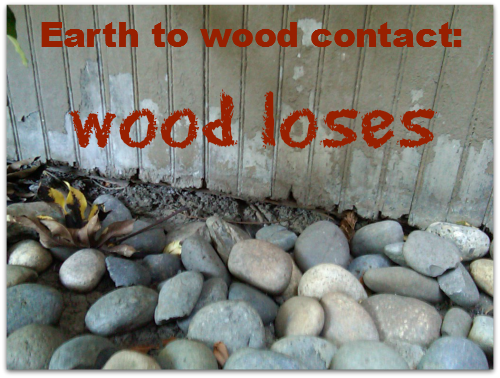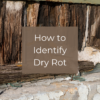Earth to wood contact refers to the physical connection or contact between soil or earth and wood materials. This contact can have various implications, particularly in construction, gardening, and woodworking.
There should not be any earth-to-wood contact around the structure. Earth-to-wood contact creates the potential for ideal rot conditions and provides an easy avenue for bugs and wood-boring pests. Earth and cover material, such as bark dust or other mulching materials, should be at least 6″ below any wood.
Here are some key points related to earth to wood contact:
Gardening and Landscaping: In gardening and landscaping, earth to wood contact can be important when using wooden structures such as raised beds, garden borders, or retaining walls. Ensuring proper contact between wood and the surrounding soil can impact the durability of these structures.
Construction: In construction, earth to wood contact is a consideration when building foundations, decks, or structures that involve wooden components. Properly managing the contact between wood and soil is essential to prevent rot, decay, and termite infestations.
Moisture and Rot: Prolonged contact between wood and damp or moist soil can lead to wood rot and decay. To mitigate this, various methods can be employed, including using pressure-treated lumber, providing adequate drainage, or using barriers like plastic or gravel to separate the wood from direct soil contact.
Termite Protection: Termites are attracted to wood and can cause significant damage. Properly treating the soil or using termite-resistant materials can help protect wood structures from termite infestations.
Maintenance: Regular inspection and maintenance are important for structures with earth to wood contact. This can involve checking for signs of decay, ensuring proper drainage, and applying treatments as needed.
Environmental Considerations: Depending on the type of wood and treatment methods used, there may be environmental considerations associated with earth to wood contact. Some treatments can contain chemicals that may leach into the soil, which can be a concern in certain applications.
It’s important to follow best practices and consider local building codes and regulations when dealing with earth to wood contact to ensure the longevity and safety of structures involving wood and soil interactions.





